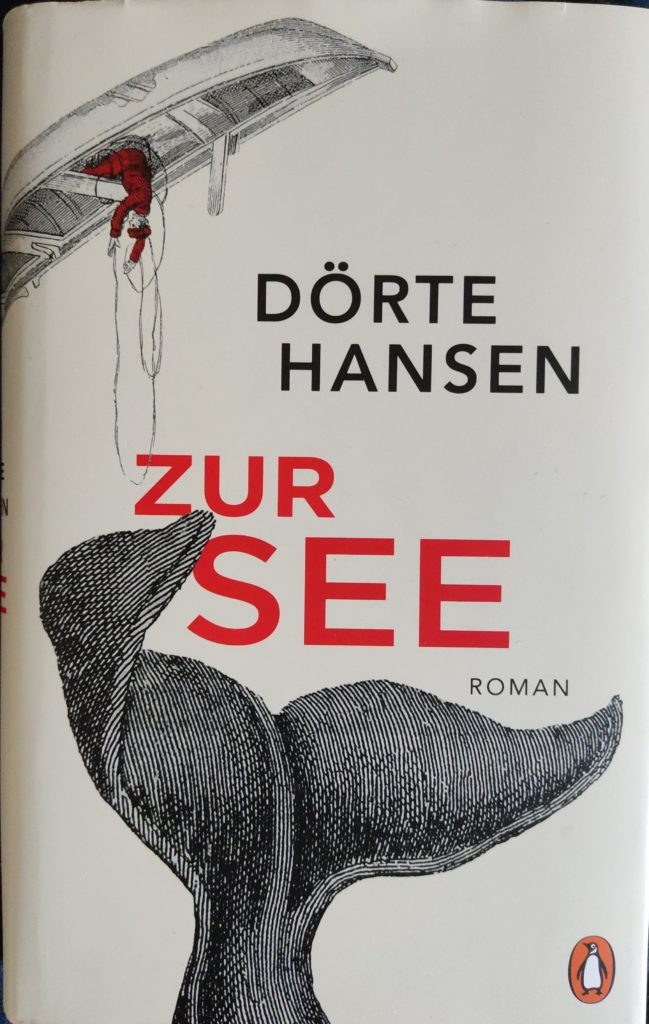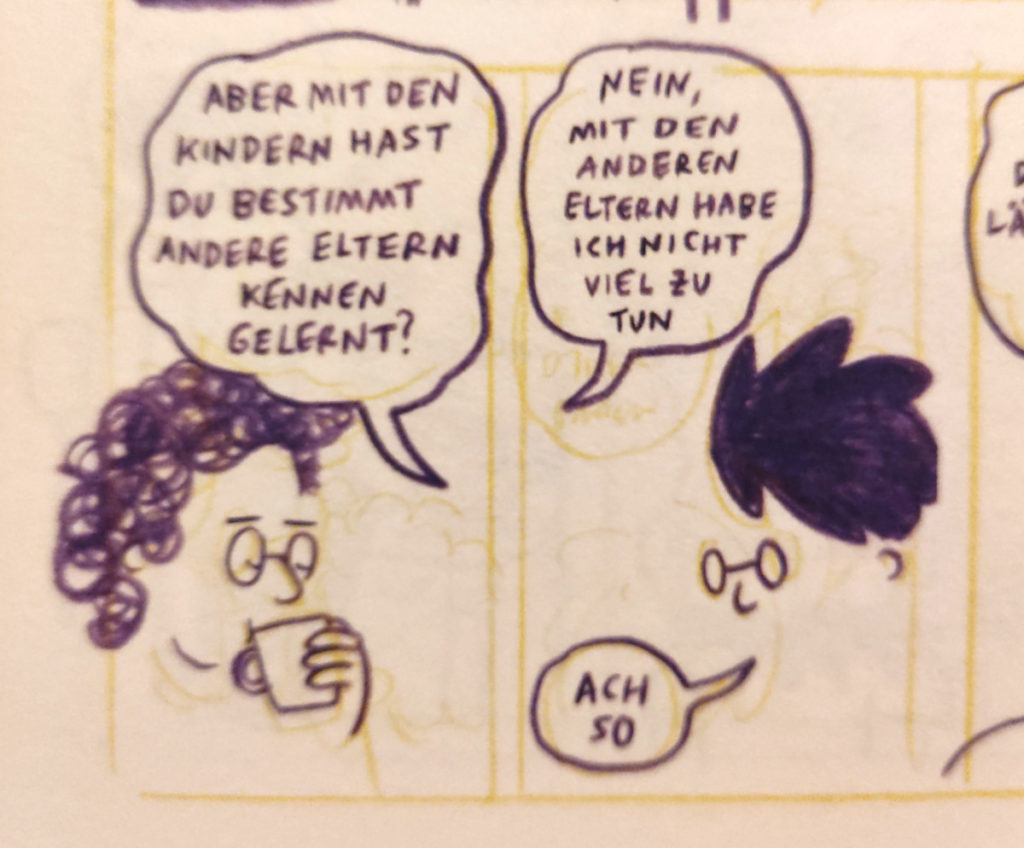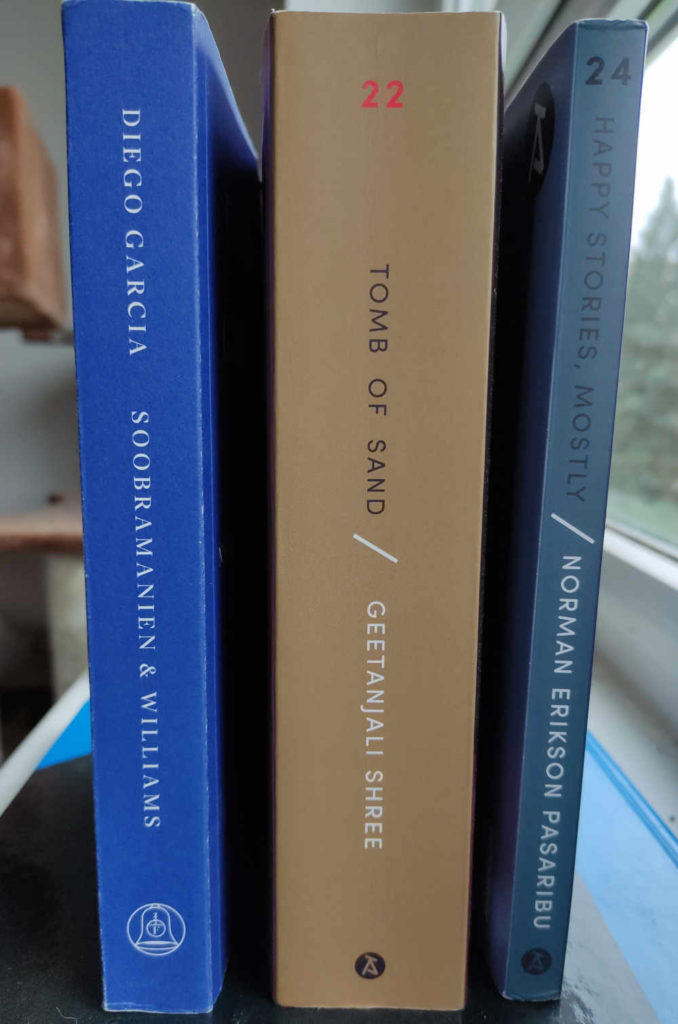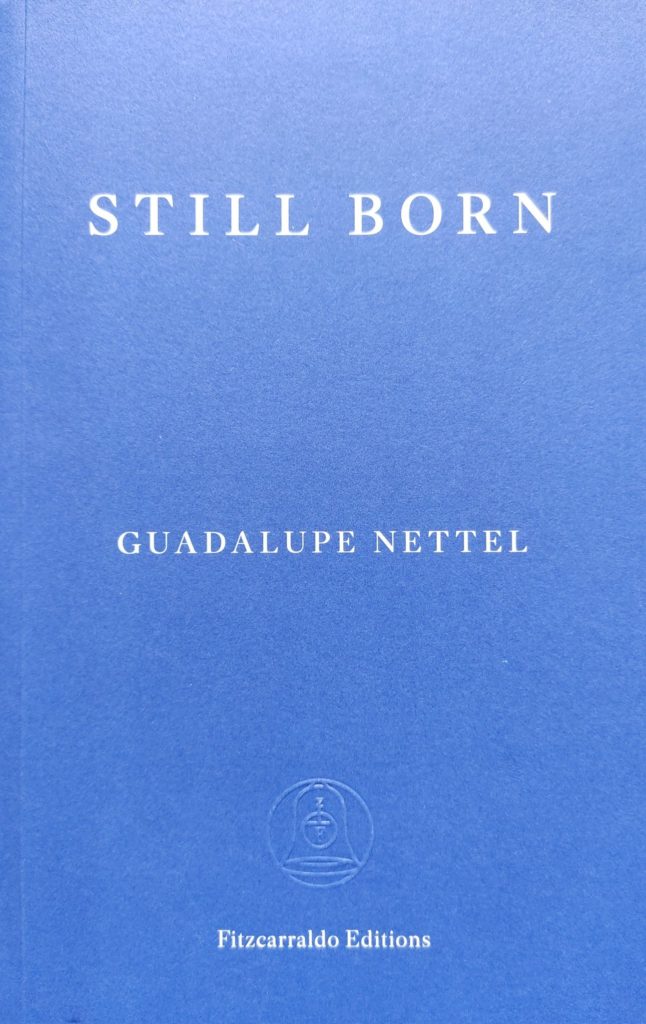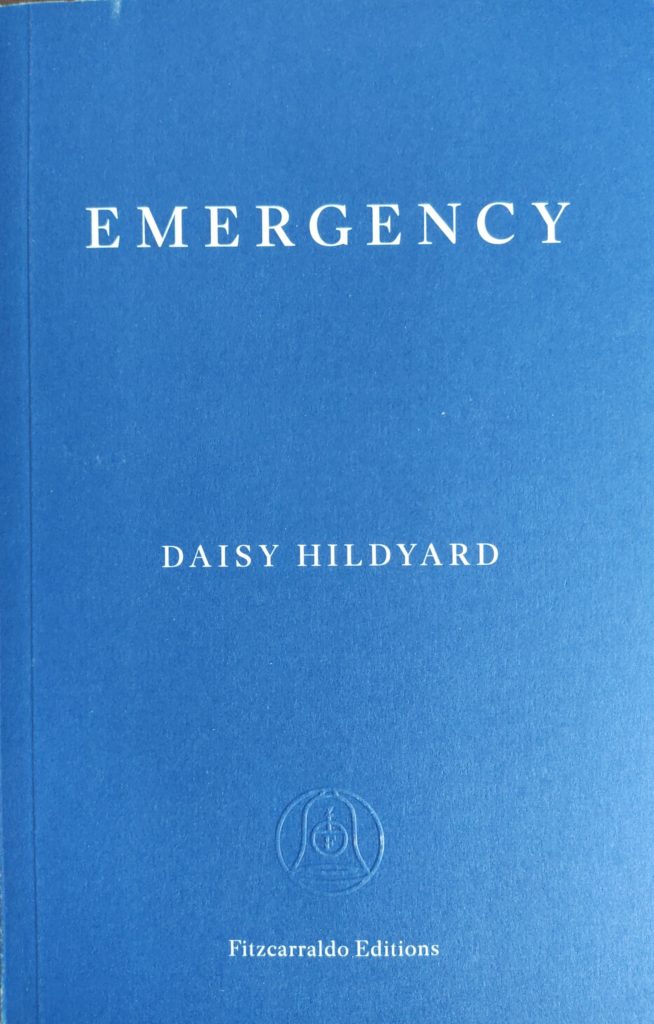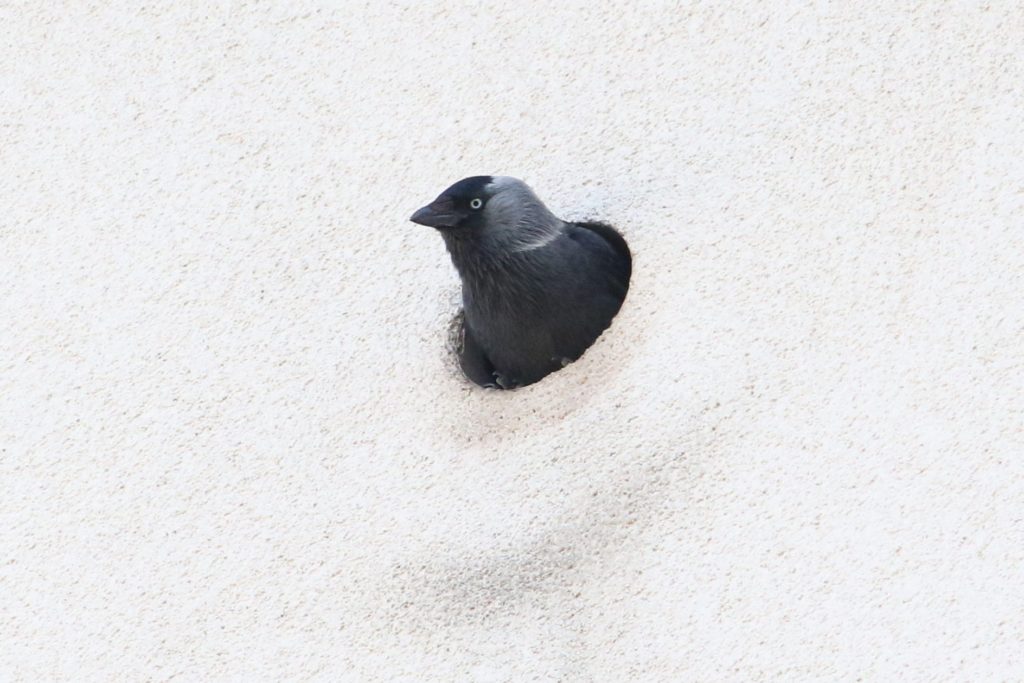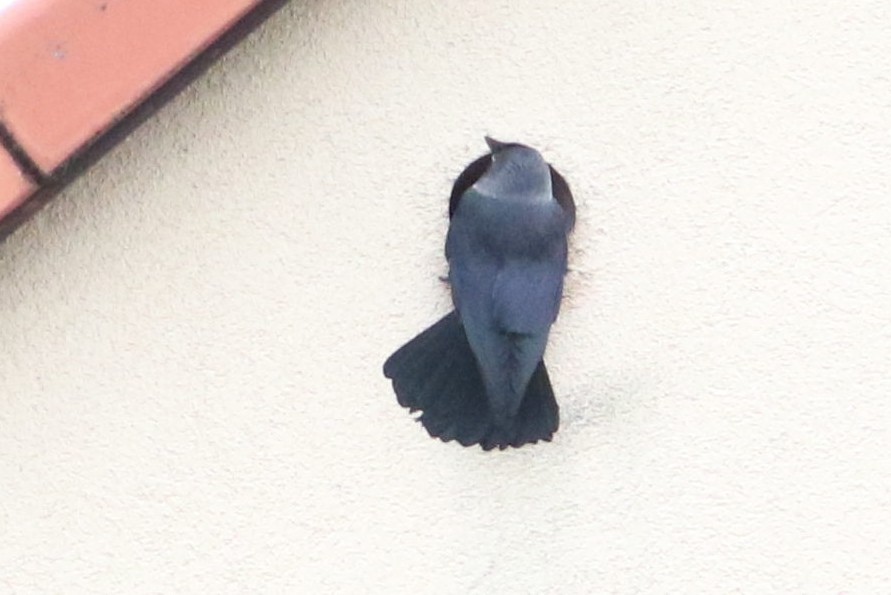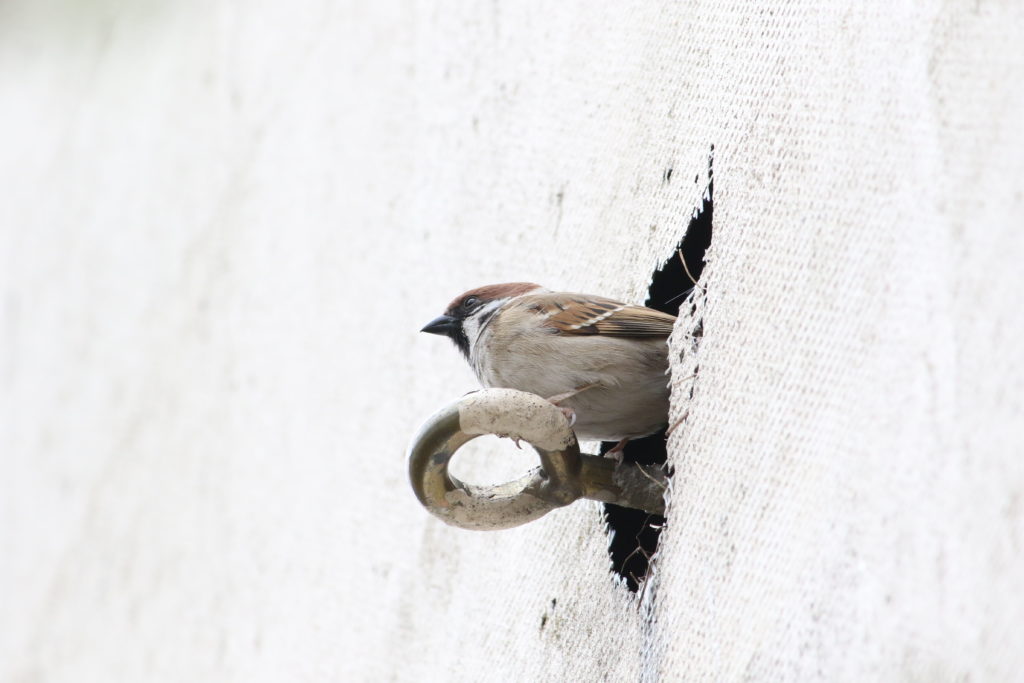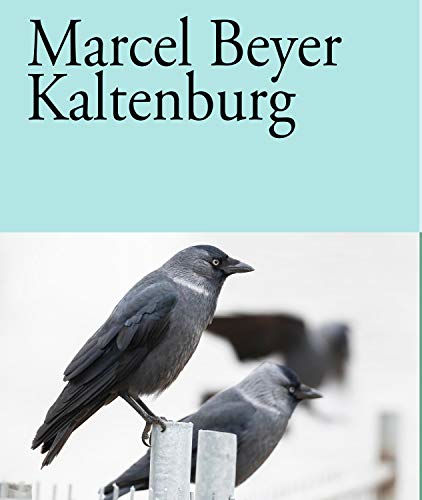I finished a holiday-boosted 14 books in August; 12 of those by women/POC, thanks to Women in Translation month (which turns out to mean non-men writing in non-English, even if that’s not so catchy).
- The Trap — Dorothy M. Richardson
- Before Now — Moira McPartlin
- Valentino — Natalia Ginzburg tr. Maja Pflug (not clear if she is the only translator)
- Ministerium der Träume — Hengameh Yaghoobifarah
- Hikayat: Short Stories by Lebanese Women — Roseanne Saad Khalaf (ed.) (various translators)
- Fieldwork in Ukrainian Sex — Oksana Zabuzhko tr. Halyna Hryn
- A Girl’s Story — Annie Ernaux tr. Alison L. Strayer
- Statusmeldungen — Stefanie Sargnagel
- Silma Hill — Iain Maloney
- The Devil’s Pool — George Sand tr. Jane Minot Sedgwick and Ellery Sedgwick
- Still Born — Guadalupe Nettel tr. Rosalind Harvey
- The Sandman Vol. 6: Fables & Reflections — Neil Gaiman
- Alles, was wir nicht erinnern — Christiane Hoffmann
- Oberland — Dorothy M. Richardson
Starting with two instalments of Pilgrimage, both are short and sweet. The Trap sees Miriam taking part in a misguided flat-sharing experiment, lightened by some Wildean dialogue with her flatmate:
“They ought to be pensioned.”
“The poor?”
“Everybody. I should love to be pensioned.”
“And remain in idleness and dependence? Oh, no.”
“Not dependence. Interdependence. No compulsion.”
“What would you do?”
“Spend several years staring; and then go round the world.”
and bizarrened by observing Yeats at his window in the flat opposite.
As in some of the earlier volumes, there are fascinating glimpses of turn-of-the-century life, from soap-cutting to how to move house:
“I’ll go round for my things. Must find a greengrocer,” she said, looking in on Miss Holland cutting a slice from a substantial bar of plain soap.
“You prefer a greengrocer? I am employing the Church Army myself. They are most useful. And it is quite the least expensive way of moving.
More of Miriam being neurodivergent:
It was bad to be so different and to like being different.
And as with the death of her mother, her sister’s death is mentioned only in passing:
It was strange, one of those strange hints life brought that she should have appeared at the very time of the other Eve’s unbearable death, bearing not only her name, but her gentle certainties. And her way of gathering all spears to her own breast.
After several volumes in cheap London rooms, Oberland takes us back to where Pilgrimage started, on the continent — in this case, Switzerland. Little about long-distance travel seems to have changed in the last century:
She had no idea of how long she had sat hemmed and suffering, with nothing in her mind but snatches of song that would not be dismissed, with aching brow and burning eyeballs and a ceaselessly on-coming stupor that would not turn to sleep.
Miriam also seems to have modern ideas about mindfulness:
free from the risk of hearing the opening day fretted by voices set going like incantations to exorcize the present as if it had no value, as if the speakers were not living in it but only in yesterday or to-morrow.
and fundamental attribution error:
Again she had that haunting sense of being a collection of persons living in a world of people always single and the same.
The village of Oberland is becoming dominated by tourism — souvenirs:
Little expensive cheap things whose charm was beyond price
Living inside her head, we learn about the importance of soap:
all great days had soap, impressing its qualities upon you, during your most intense moments of anticipation, as a prelude. And the realization of a good day past, coming with the early morning hour, is accompanied by soap. Soap is with you when you are in that state of feeling life at first hand that makes even the best things that can happen important not so much in themselves as in the way they make you conscious of life, and of yourself living. Every day, even those that are called ordinary days, with its miracle of return from sleep, is heralded by soap, summoning its retinue of companion days.
Miriam spends considerable time with the “tourist community”, but is ultimately alone with the landscape:
all that could be felt to the full only in solitude amongst things whose being was complete, towards that reality of life that withdrew at the sounding of a human voice.
Alpine winter tremendously at work, holding her fascinated at windows downstairs, upstairs; mighty preparation for the beauty of days she would not see, robbing her of farewell, putting farewell back into yesterday’s superficial seeing which had not known it was the last.
Valentino is a novella (here with a few earlier short stories) by Natalia Ginzburg. They may not have been the best place to start with her — all were relatively slight — though I did enjoy her endnote about the difficulties of becoming a writer in such an unglamorous world as middle-class, inter-war Turin. I wasn’t enormously excited by The Devil’s Pool either, though in this case I don’t feel much need to explore George Sand further.
Hikayat: Short Stories by Lebanese Women was a mixed bag, as one might expect. The editor mentions in the introduction that there aren’t that many short stories by Lebanese women, and some of the works here are extracts from longer works, or were written for creative writing workshops. There’s some poor writing (or translation):
‘ … Occasionally I played chess with some of the regulars there, but mostly I donned my mask and flippers to go skin-diving, relishing the cool serenity of the Mediterranean,’ he explained to the interested guests.
Some stories are written in a very florid style which I also found in some Algerian novels, and which I can quite enjoy:
But I know, I know that she loved me desperately, totally, like a cloud loves another cloud and merges into it, why must I keep playing a game, now, when I’m under her death’s absolute power, having lost the very notion of my own self?
“Voice”, by Patricia Saraffian Ward, was the standout story for me, subverting the expectations of the male narrator and the reader.
Fieldwork in Ukrainian Sex is a love(ish) story about two Ukrainian artists in America. Their chaotic lives are matched by the narrator’s monologic style (parentheses spanning several pages); I was intrigued enough to look out for some of her other works, and there’s an obvious contemporary relevance in the subject matter:
the Ukrainian choice is a choice between nonexistence and an existence that kills you, and that all of our hapless literature is merely a cry of someone pinned down by a beam in a building after an earthquake—I’m here! I’m still alive!—but, unfortunately, the rescue teams are taking their time and on your own—how the hell are you supposed to get out?
at home, in your poor beaten-down country, a country of government officials with sagging pants and generous sprinkles of dandruff on their jackets, greasy writers adept at reading in one language only and not partaking of that ability all too often, and shifty-eyed, cockroach-like businessmen with the habits of former Komsomol organizers
Turning to more definite hits, A Girl’s Story was my first Annie Ernaux, and certainly not my last. Ernaux is like an emotionally self-aware Knausgard: she tells the story of a period of growth and traumas in her teenage years, all the time aware of the differences between her younger and current selves:
To list her social inadequacies would be interminable. She does not know how to make a telephone call, has never taken a shower or bath. She has no experience of environments other than her own, which is Catholic and working class, of peasant origin. From this distance in time, with her great insecurity about her social graces and use of language, she appears to me gauche, ill at ease, even rough-spoken.
The most intense part of her life is the time she spends immersed in the books she has insatiably consumed ever since she learned to read. All she knows about the world she has learned from these, and from women’s magazines.
From her examination of herself, grow broader thoughts about life, time and writing:
At this very moment, out in the streets, the open spaces, on the metro, in lecture halls, and inside millions of heads, millions of novels are being written chapter by chapter, erased and revised, and all of them die as a result of becoming, or not becoming reality.
One cannot see the future of something learned.
to ask a question rarely broached in literature: how does anyone who is just starting out in life muddle through the necessary ordeal of finding a way to earn a living, deal with the moment when a choice must be made, and eventually, with the feeling of being, or not being, where they ought to be?
I know it is impossible for me to remove – sacrifice – everything I have written about her up until now. This also applies to what I have written about myself. That is how this writing differs from a fictional narrative. There can be no tampering with reality, with the this-happened element
It is the absence of meaning in what one lives, at the moment one lives it, which multiplies the possibilities of writing.
The combination of autobiography and more philosophical speculations is thrilling.
Statusmeldungen sees Stefanie Sargnagel also mining her life experiences, but distilling the results into mostly tweet-sized entries for each day. Some of the cultural references are obscure to the uninitiated, but the format works very well — she creates larger patterns of series of entries alternating with stand-alones, to great effect — and she enjoys making fun of herself, her milieu and Austrian society more broadly:
4.10.2015 Immer dasselbe: Am Anfang bin ich urbegeistert, dann verlier ich das Interesse (Refugees)
28.2.2016 Schwanz ist die Abkürzung von Schwanentanz
Another very worthwhile experience was Hengameh Yaghoobifarah’s Ministerium der Träume — it begins as a study of the troubles of a woman who is totally unprepared for becoming her niece’s guardian, then metamorphoses into a less-convincing thriller. The developing relationship between the two, plus the depiction of life as a gay person of colour in Germany, are both very well done, however (and my colloquial German was considerably enhanced).
Alles, was wir nicht erinnern is the story of a German journalist (and now government spokeswoman) retracing the route taken by her father’s family when fleeing Silesia at the end of the war. She talks to everyone she can find, and shows their complexities with admirable even-handedness: there are Czechs in the former Sudetenland who turn out to be antisemites, but also returning German former-refugees who see their own history reflected in recent arrivals from the Middle East. The journey is interwoven with a moving account of the family’s post-war years and her father’s eventual death.
Still Born is an excellent novel, based on a true story, of a series of maternal relationships in Mexico City. One of these (involving pigeons) is perhaps a little over-symbolic, but like Hoffman and Yaghoobifarah, she shows clearly the value in the imperfect.
A couple of Scottish novels: Before Now conveys the energy of life in a working class Fife village through exuberant use of dialect. I found the conclusion rather forced, but it didn’t detract from an enjoyable read. Iain Maloney’s Silma Hill is set in another village, where a witch-trial unexpectedly rubs up against 18th-century rationalism. The tone darkens considerably as the novel progresses, with both comic and tragic elements done well, though again I had some issues with the ending.
The final book for this month was The Sandman Vol. 6: Fables & Reflections — my first volume after a bit of a hiatus. This is a collection of short stories, impressively varied, and the series gets better and better.
Following on from Women in Translation month, I’m planning an Asian month for September, to go along with Black History Month in October. And following on from The Sandman, I’d like to do one graphic novel a month at least until the end of the year.

